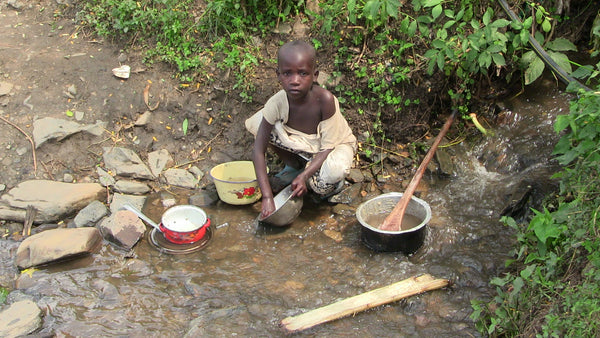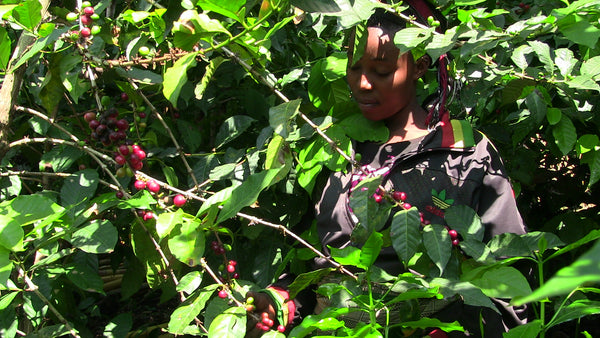Coffee could change the world. But first we need a disruptive innovation to evolve our trading system. This post is the second of four installments diving deep into the issue of true sustainability in the coffee industry, written by HG cofounder Chris Treter.
[ Part 1: Inequality Rules the World | Part 3: Let's Put People First | Part 4: We Need to Collaborate Towards Sustainability and Development at the Same Time ]
//
In many parts of the coffee industry, “sustainability” is often a trickle-down approach with little long-term impact, brought mainstream by the third wave, direct trade pioneers and adopted by the largest corporations and industry players dominant in specialty coffee. Investing in agricultural inputs and quality premiums to increase consumer demand and price as the overarching strategy to increase farmers’ well-being is simply not leading to the change our industry needs. A primary focus on climate change, cost of production, and farm workers skirts past addressing the basic needs of people and their communities--a point acknowledged by leaders in the industry, but in order to enact change, we coffee companies need to do more than talk.
Studying 112 economies in 2017, the World Economic Forum concurred that this unifocused approach is short sighted: “The inequality debate focuses almost exclusively on up-skilling of labor and redistribution...To focus only on them is to miss the fuller opportunity”--an opportunity to actually adjust living standards by the way we do business. Without access to the basic necessities humans need to survive—health care, education, potable water access—it is nearly impossible to end poverty in the coffeelands.
Global inequality is an urgent human rights issue that needs to be treated as the visceral cornerstone of any sustainability program in the Specialty Coffee industry. Placing agricultural inputs, quality, and social price premiums as the cornerstone to “sustainability” in our industry is self-serving. As an industry White Paper from a few years ago recognizes, “The income that farmers earn from coffee is often less than most farmers’ annual spending needs. Unfortunately, this is true even among farmers who receive a price premium for fairtrade or organic certifications.”
Farmers all over the world are at their wits’ end. A recent letter sent to the CEOs of major coffee organizations on behalf of global coffee farmers implores, “Since 1990 coffee prices have been behaving in a way that is every day more and more damaging to farmers, to the point where in many countries they cannot even cover their production costs, let alone make a profit to make a decent livelihood for them and their families.”
“Some may argue,” the letter continues, “that ‘the market is the market and it does what it has to do.’ For some products, that may be the case. However, in the case of coffee, where you have the livelihood of more than 25 million families at stake, many of which are facing a pauperization process that is taking them to a situation of misery, that is nothing short of inhumane.” Loudly and clearly, coffee farmers are trying to tell us that the situation is dire. Many are abandoning their farms. Many more are simply producing less, because why would you produce more of an unprofitable product?
There is huge disparity here, and the statistics don’t lie. At the start of 2018, Oxfam reported (based on data from Credit Suisse) that just 42 people own the same wealth as the poorest half of humanity (3.7 billion people).
Adjusted for inflation, the price of a cup of coffee actually cost the consumer less in 2016 than the average cup over the past 50 years, and the situation hasn’t changed over the last two years either.
Coffee accounts for 1.6% of our GDP in the U.S., providing over 1.7 million jobs and fueling those of us spending 74 billion dollars a year to get our morning fix. 41% of us drink coffee every day.
The specialty sector is rapidly taking over the coffee industry, accounting for about 59% market share in 2017. And perhaps one of the most dramatic growth statistics of all: the U.K. specialty coffee market is on a course to grow by 100% by 2020.
Howard Schultz, the former CEO of one of the largest coffee chains on the planet, has a net worth of over 3 billion dollars, with USA Today reporting his total compensation as 717 times that of their average employee. Consider the divide between him and the Zawadis of the world, who grow the plants that made him a billionaire. Consider the vast gulf even between the poorest working Americans who often have cable television, cell phones, and cars, and the Zawadis, for whom there are no minimum wage regulations--but even more despairingly, no laws guaranteeing healthcare for children, no food banks, no safety nets.
Lately conversations about sustainability in coffee have focused on price per pound (we've talked about it ourselves in this blog), since the current C price is below the cost of coffee production. Yes, price matters--and there is a lot of excellent data being analyzed by our friends at Transparent Trade and SCA--but there is a lot more to the puzzle; the price is simply one lens through which we can look at the issue. The next post will explore more of those pieces.



